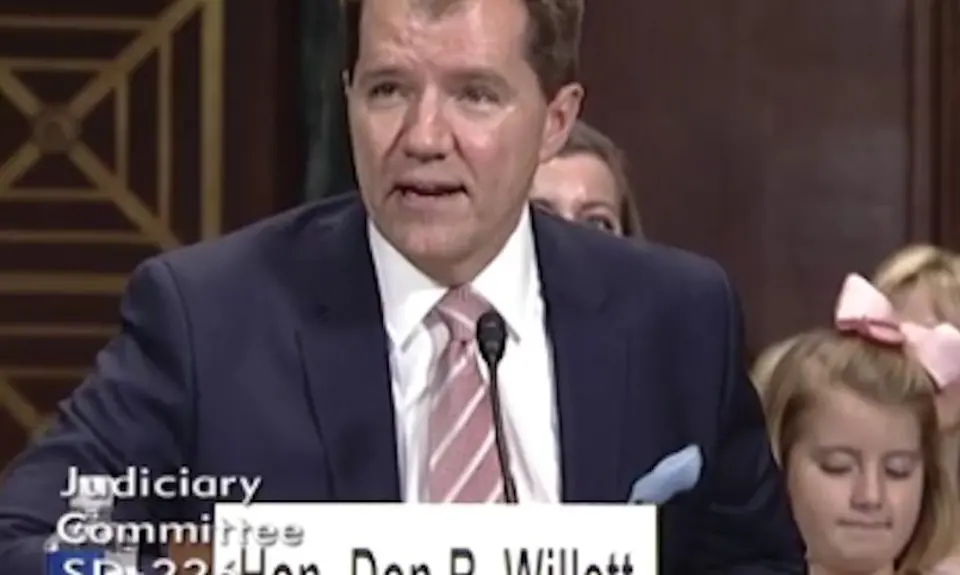“Confirmed Judges, Confirmed Fears” is a blog series documenting the harmful impact of President Trump’s judges on Americans’ rights and liberties. Cases in the series can be found by issue and by judge at this link.
Trump Fifth Circuit judge Don Willett cast the deciding vote in a 2-1 ruling that rejected a claim that a person received constitutionally ineffective assistance of counsel because his lawyer failed to advise him of his right to appeal a harsh sentence. The July 2021 decision was in U.S. v Alaniz.
Alberto Alaniz pleaded guilty to drug and money laundering offenses, and received a harsh sentence of over twenty years in prison. No direct appeal was filed by his lawyer, but Alaniz on his own filed a petition for post-conviction relief, which he did shortly before the one-year deadline for such claims. Alaniz contended that he had received ineffective assistance of counsel in violation of the Constitution because of his lawyer’s conduct concerning an appeal, including his failure to file one even though Alaniz contended he had requested that he do so. After a hearing on his petition, Alanis filed supplemental papers making clear that his concern was the lawyer’s failure to advise and consult with him on his appellate rights, as well as his failure to actually file an appeal.
The lower court judge rejected Alanis’ failure-to-file claim, finding that he had not “testified credibly” concerning whether he had specifically requested an appeal during the sentencing hearing. The judge refused to consider his claims about the lawyer’s failure to advise and consult with him on his appellate rights, maintaining that these should be considered separate claims from his argument that an appeal had not been submitted and had been “filed” through his post-hearing papers after the one-year deadline. Alanis appealed.
In a 2-1 decision in which Trump judge Willett was the deciding vote, a Fifth Circuit panel rejected the appeal and affirmed the lower court. The majority maintained that Alaniz’s claims about his lawyer’s failure to advise and consult with him on his appellate rights did not “relate back” to what the majority considered to be a separate claim about the lawyer’s failure to file an appeal. Accordingly, they concluded, the lower court was correct to refuse to consider them because they had not been specifically raised until shortly after the one-year deadline.
Judge James Graves firmly dissented. He explained that the failure to advise and consult claims clearly did “relate back” to the initial petition specifically raising the failure to appeal because they are all “clearly tied to a common core of operative facts.” Even if the lower court correctly found that Alaniz’s lawyer did not hear him specifically request that an appeal be filed, Graves continued, if the lawyer had “fulfilled his obligations” to advise and consult with him on an appeal, it “would not have mattered” whether he heard a specific request during the hearing. The record also showed, Graves went on, that Alaniz’s daughter had raised the issue as well. Graves concluded that the decision below should be reversed and Alaniz should have the opportunity to fully litigate his claims concerning ineffective assistance of counsel in a criminal case.
As a result of Trump judge Willett’s deciding vote, however, Alaniz will not have that chance. The case is yet another example of Trump judges failing to fully respect the importance of the fundamental right to effective assistance of counsel, and reinforces the importance, as part of our fight for our courts, of the Senate confirming Biden judicial nominees who will respect such fundamental rights.
